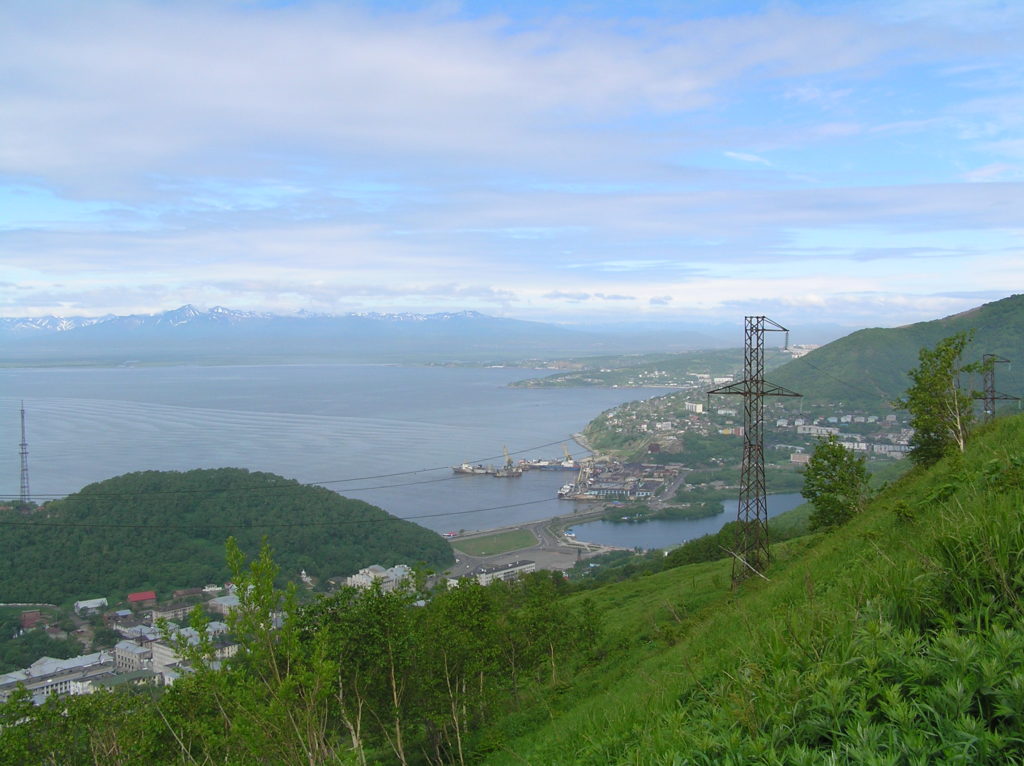Russia After The War

Vilyuchinsk Submarine Base is on the opposite shore.
I’m struggling to envision how Russia’s war on Ukraine ends. There are many possibilities, but none are obviously probable. The uncertainty is heightened by Russia’s poor performance early in the invasion. They seem to be slowly taking ground now that they have concentrated their forces in eastern Ukraine. Another reason for uncertainty is Putin’s statements of large goals early on, now shrunk to a slight widening of the 2014 invasion of eastern Ukraine. Ukrainian President Volodymr Zelinskyy has said that his goal is to end Russia’s presence in Ukraine.
Whether Putin’s goals have changed is unknown. Zelinskyy’s might change if Russia inflicts enough destruction.
In its willingness to inflict a war of territorial aggression on its neighbor, Russia has changed its relationship to the world. What future does that portend?
There’s lots of advice out there. I’m firmly of the opinion that we cannot allow Russia’s attempt to overturn so many post-WWII assumptions to be successful. But I don’t know how we do that yet. Perhaps there will be more clarity as the war continues.
Here are two aspects I think are important, although both are mainly up to Russia. There’s no obvious way to incentivize them to take these actions. We’re not going to occupy Russia as we did Germany and Japan after World War II.
First: Stephen Kotkin puts it well.
Russia is a remarkable civilization: in the arts, music, literature, dance, film. In every sphere, it’s a profound, remarkable place—a whole civilization, more than just a country. At the same time, Russia feels that it has a “special place” in the world, a special mission. It’s Eastern Orthodox, not Western. And it wants to stand out as a great power. Its problem has always been not this sense of self or identity but the fact that its capabilities have never matched its aspirations. It’s always in a struggle to live up to these aspirations, but it can’t, because the West has always been more powerful.
In response to this Russian sense of “special place,” Sergey Radchenko feels humiliation is in order.
Russia needs proper humiliation. It needs a humble recognition of its diminished status, an acceptance of guilt, and a slow, painstaking effort to rebuild the trust of those it has wronged. Russia did not learn this lesson in the 1990s. It must learn it now.
He’s referring to the collapse of the Soviet Union in 1991 and wants a defeat in Ukraine to teach Russia lessons it didn’t learn then. Germany did a lot to come to terms with its past after World War II. Japan arguably less so. And the US is still fighting the Civil War.
Second: Russia is an empire.
The Soviet Union put up a good publicity show to hide this. They inherited an empire from the Tsars, who had done the killing and conquest. The Communists spoke lovingly of the “nationalities” and claimed that all had equal place in their ethnic paradise. The truth was mixed – the Russian language was imposed throughout, more so in some times and places than others, and boundaries within the Soviet Union were drawn to assure ethnic conflict in case of attempted independence. For its entire history, the Soviet Union was Russia and its colonies.
The Soviet Union’s charter, however, explicitly allowed the subunits of the state to seek independence. The Baltic States used that legality to end Russia’s domination. This is one of Vladimir Putin’s gripes against the Bolsheviks.
Casey Michel argues that the non-Russian groups within Russia now should look toward independence. That’s a harder pull than the independence of the Soviet republics, which split in the early 1990s. The republics each had their own supreme soviet, or legislature, so they had some level of government ready to go. Gorbachev had introduced voting reforms that could be built on. Today’s groups within Russia have much less governmental structure that could move to indepedence.
Decolonization was a theme post World War II. Russia is still an agglomeration of colonies and the colonizer.
Russia has been through the cycle Kotkin describes many times. These two factors are essential for it to break out.
Cross-posted to Nuclear Diner


